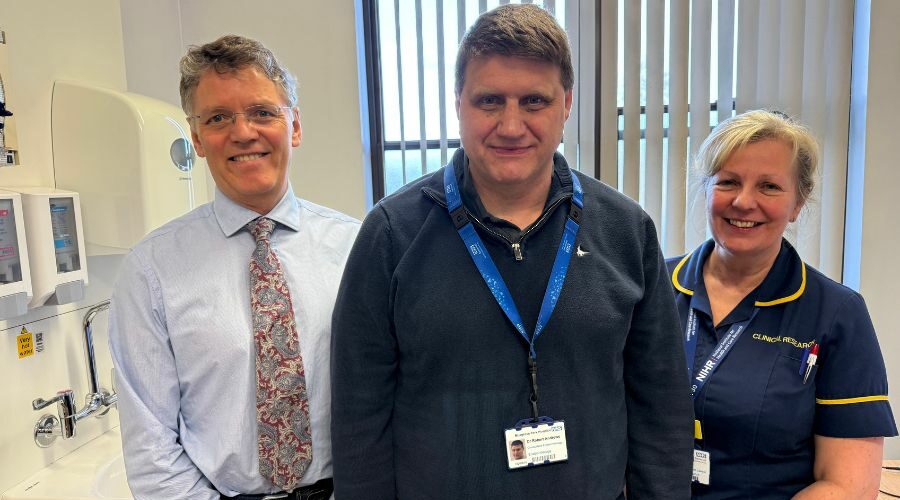
Spotlight
Study finds gastric bypass most effective for obesity surgery
A high profile study that has run at our trust over the last decade has revealed that gastric bypass is the most clinically and cost effective form of interventional surgery for people living with severe obesity.
As the largest completed trial of its kind, involving 1,346 patients, 247 of which were recruited through Musgrove Park Hospital as the highest recruiting hospital, By-Band-Sleeve compared Roux-en-Y gastric bypass (‘Bypass’) with two other types of metabolic and bariatric surgery - adjustable gastric banding (‘Band’) and sleeve gastrectomy (‘Sleeve’).
It was led by the University of Bristol and supported by the National Institute for Health and Care Research, with Musgrove Park being the lead centre and first hospital to host it. Professor Rob Andrews, one of our diabetes consultants, was our principal investigator, and Professor Richard Welbourn, one of our consultant bariatric surgeons, was our co-investigator and the overall lead surgeon.
Current national guidelines recommend surgery is considered for people living with severe obesity, and in the UK and worldwide, Bypass and Band were very commonly performed when the trial started.
A third operation, Sleeve, started to be performed more often during the first two years of the trial and was then included.
Researchers found Bypass to be most clinically effective for patients and to provide the best value for money for the NHS three years after surgery.
Nicki Salter, our research team leader for bariatrics, weight management and endocrinology, who was the national lead research nurse and also led on recruitment into the study at Musgrove Park Hospital, says it has made such a huge difference to have the results of the By-Band-Sleeve study.
“For the first time we now have the concrete evidence to tell patients considering bariatric surgery which operation is best out of the three procedures compared,” she says.
“This is not only around weight loss and cost effectiveness, but also in terms of quality of life, which perhaps is the most important factor.”
Jane Blazeby, Professor of Surgery at the University of Bristol, who led the trial, adds:
“Based on the trial findings, we recommend patients electing to have bariatric and metabolic surgery are advised to have Bypass. Sleeve should be a secondary option when Bypass is not possible. Our evidence does not support Band as standard treatment for people living with severe obesity.
“The hard work undertaken by all the study participants, surgeons, nurses and dietitians means we now have reliable information to inform NHS practice.
“The next challenge is for surgical teams to work with researchers and physicians to conduct a new study that compares surgery to weight loss drugs to create evidence to understand how they compare surgery in terms of weight loss, quality of life and costs.”
Professor Danny McAuley, Scientific Director for NIHR Programmes, says: "Obesity is one of the biggest challenges facing us globally and in the UK. This treatment will help save lives and improve the quality of life for patients, while providing better value for money for the NHS.
“NIHR funded trial results provide vital evidence that gastric bypass improves the quality of life for UK patients and help clinicians and those providing NHS and care services choose the best treatments.
“The findings demonstrate how our life changing NIHR research, funded by the public, has impact to support the health and care sector to achieve more effective and efficient use of resources.”
The study found that 68% (276) participants randomised to Bypass achieved at least 50% excess weight loss after three years, compared to 25% (97) for Band and 41% (141) for Sleeve.
On average trial participants lost 26.5kg (just over 4 stone). Some people lost as much as 98 kg (over 15 stone). There were a few that gained weight (<10%).
Bypass led to a greater reduction in comorbidities, such as high blood pressure and diabetes. Bypass was found to be the most cost effective option when taking into account patients’ quality of life using a standard UK cost threshold applied by NICE.
So, although Bypass was a more costly operation initially, it led to better quality of life and lower healthcare costs after three years compared to the other two surgeries.

